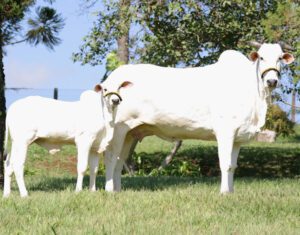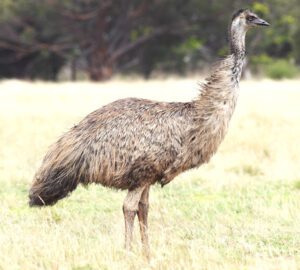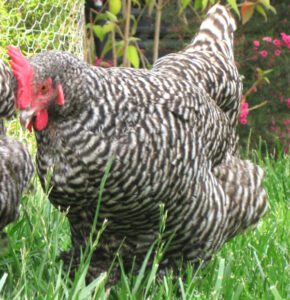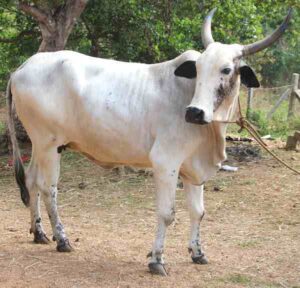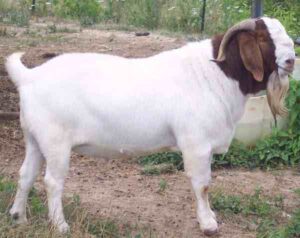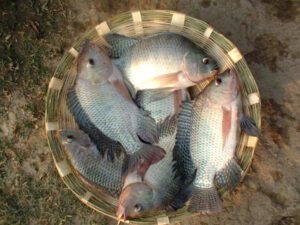The Sahiwal cattle is a breed of zebu cow. It is named after an area in the Punjab region (which is divided between Pakistan and India), where the cattle is found.
It is considered as a heat-tolerant cattle breed. And it can perform well in it’s native area. It is known by some other names such as Mint Kumre, Lambi Bar, Lola, Montgomery, Multani and Teli.
The breed was originated in the dry Punjab region which lies along central Punjab. Once these animals were kept in large herds by professional herdsmen called ‘Charwahas’.
They began to be kept in smaller numbers by the farmers of the region, with the introduction of irrigation system to the region. And the farmers used them as draught and dairy animal.
Today, the Sahiwal cattle is one of the best dairy cattle breeds in India and Pakistan. The cows are calm when milking.
The breed is good for raising in the hot South Asian countries, due to it’s heat tolerance and high milk production. And the breed has been exported to many other Asian countries as well as Africa and the Caribbean.
History and Origin
The Sahiwal is an ancient cattle breed. It derives it’s name from the region where it was originally developed, Sahiwal, which is now part of Pakistan. The breed’s roots can be traced back to the district of Montgomery, now known as Sahiwal, in the Punjab region of undivided India.
The Sahiwal breed is a result of crossbreeding between the indigenous cattle of the region and the Red Sindhi and Dajal breeds. The goal was to develop a breed that could thrive in the harsh climatic conditions of the Indian subcontinent while producing ample milk and maintaining good overall health.
Sahiwal Cattle Characteristics
The Sahiwal cattle are medium in size and they are very beautiful. Their common body coloration is brownish red to greyish red. Both bulls and cows generally have horns.
As a medium sized breed, average body weight of the mature bulls is between 400 and 500 kg. And average body weight of the mature cows is between 700 and 800 kg.
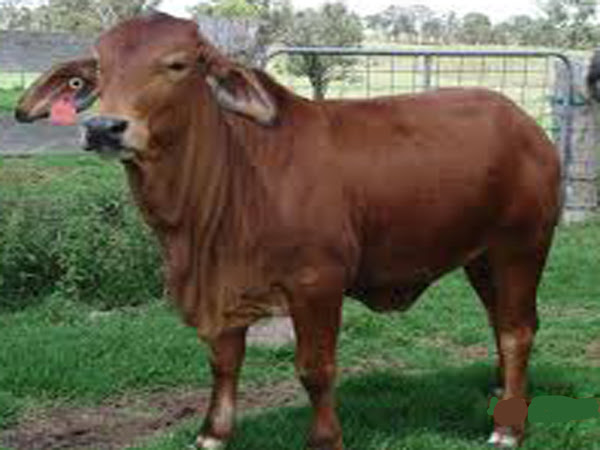
Uses
The Sahiwal cattle are dual-purpose animals. They are good and used for both dairy and draft purposes. But in India, the breed is raised mainly for milk production purpose.
Special Notes
The Sahiwal cattle are very strong and hardy animals. They are very heat tolerant and generally do very well in some south Asian countries. The cows are the heaviest milkers of all zebu cattle breeds, and they display a well-developed udder.
Sahiwal cattle are now predominantly used in Australia for beef production, as crossing high-grade Sahiwal sires with European breeds produced a carcass of lean quality with desirable fat cover.
Sahiwal bulls have demonstrated the ability to sire small, fast-growing calves, noted for their hardiness under unfavorable climatic conditions.[1]
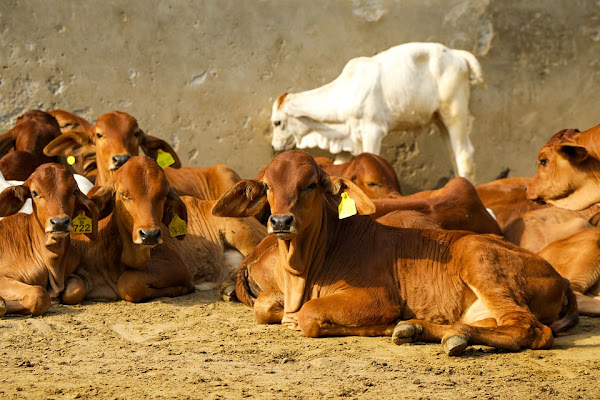
Milk of the Sahiwal cattle is of very good quality and generally used for making many different milk products. However, review full breed profile of this cattle breed in the chart below.
| Breed Name | Sahiwal | |
| Other Names | Also known by some other names such as Mint Kumre, Lambi Bar, Lola, Montgomery, Multani and Teli | |
| Breed Purpose | Milk and draft | |
| Special Notes | Good behavior and temperament, known for their hardiness and their ability to convert grass into milk efficiently, able to adapt a wide variety of climates, very good for milk production, milk is of good quality, the breed is also good for meat, good for draft purposes, top among the zebu cattle breeds | |
| Breed Size | Medium | |
| Bulls | Between 400 and 500 kg | |
| Cows | Between 700 and 800 kg | |
| Climate Tolerance | All climates | |
| Coat Color | Generally brownish red to greyish red | |
| Horned | Yes | |
| Milk Yield | Good | |
| Rarity | Common | |
| Country/Place of Origin | Pakistan |

